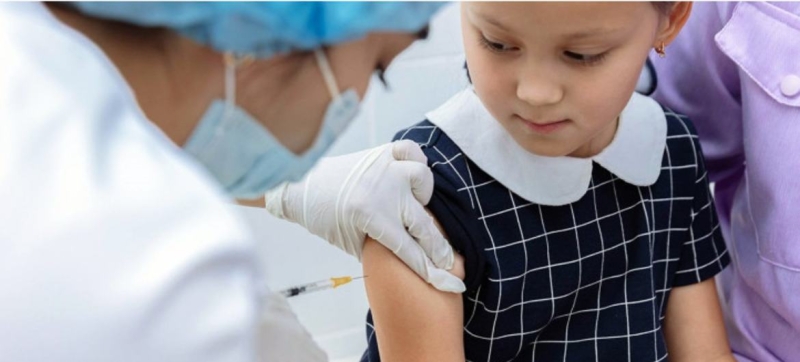
Some countries in the WHO European Region, including Kazakhstan, have managed to contain the spread of measles. European Immunization Week: Vaccines save millions of lives Healthcare
European Immunization Week starts on April 21. Its goal is to educate the public about the critical role that vaccination plays in preventing disease and protecting life.
As noted by the World Health Organization (WHO), during the pandemic there was an increase in vaccine hesitancy around the world, fueled by misinformation. Between 2019 and 2021, 67 million children worldwide missed routine immunizations.
WHO warns that refusal to vaccinate can lead to an increase in the number of dangerous diseases among the population, including measles and diphtheria, and as a result, to an increase in mortality.
Measles outbreak in the European Region
The number of measles cases has increased sharply in the WHO European Region in 2023, putting millions of people at risk. Last year, more than 58,000 people in 41 of the 53 countries in Europe and Central Asia contracted measles, leading to thousands of hospitalizations and dozens of deaths, WHO says.
Almost half of the measles cases were reported among children under five years of age. This demonstrates the extremely negative impact of the pandemic on immunization.
Health systems in the European Region have to catch up and urgently vaccinate 1.2 million children, according to WHO regional director Hans Kluge. At the same time, it is necessary to continue routine immunization, he added.
Read also:
40 years without smallpox. WHO reminds of an important achievement for humanity
“Every death from measles is a tragedy that could have been avoided because there is a safe and effective vaccine to prevent this disease,” said Dr. Kluge. . In total, 2.5 million children in these countries received vaccinations in 2023.
Decades of disease protection
This year, European Immunization Week coincides with another important date – the 50th anniversary of the establishment of the Expanded Program on Immunization (EPI). WHO created this program in the 1970s in partnership with the United Nations Children’s Fund (UNICEF) and the Global Alliance for Vaccines and Immunization (GAVI).
Today, immunization programs exist in every country of the planet. Thanks to EPI, several generations have already received protection from dangerous diseases. Vaccines have been provided to hundreds of millions of children around the world.
Looking into the future
Immunization annually saves millions of lives. Today, humanity has vaccines that can control and prevent 25 infectious diseases, giving people of all age groups the opportunity to live longer, healthier lives.
